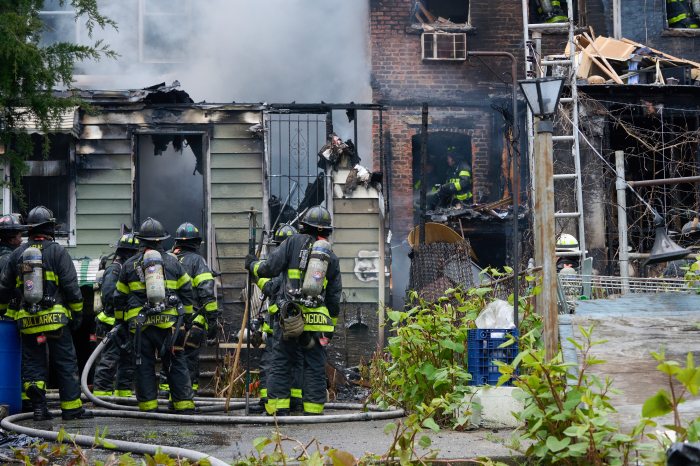In a New York City Police Department refrigerated warehouse in an industrial section of Long Island City sits 12,000 unanalyzed rape kits, important evidence that could be used to help solve rape cases still on the books, if funds were available for DNA testing.
Justice has eluded the victims of these vicious crimes because federal and state agencies cant come up with the $700 per rape kit fee needed for a DNA assessment, according to Congressman Anthony D. Weiner of the Ninth Congressional District, who is seeking funding under his DNA Backlog Elimination Act.
Rape kits containing the tissue of victims have been kept in the refrigerated warehouse at 47-15 Pearson Place in Long Island City for as long as six years awaiting the funding that could place them in evidence and lead to a convictions.
"Rape is a tough crime to stop," Weiner said. "We need to double the funding so that this backlog of cases can be cleared up and justice done."
In his legislation, Weiner is seeking $60 million to permit DNA testing to be performed. He said that in warehouses all over the country there are millions of rape kits awaiting DNA analysis.
"DNA is a powerful tool and has been used to exonerate convicted murderers who were facing execution," Weiner said. "Lets continue to put this diagnostic technique to work in the interests of justice."
Weiner said that sexual predators, who could be identified and arrested if New York was quicker to eliminate the DNA evidence backlog, are today at large and are a danger to society.
He said the NYPD estimates it will cost at least $2 million to eliminate the backlog.
"Congress should act on my bill," he said.
The legislation calls for the FBI to develop a voluntary plan to assist state and local forensic laboratories in performing DNA analyses of of samples collected.
On October 12, Katherine M. Lapp, director of criminal justice for Governor George Pataki, wrote Congressmen to support the DNA Elimination Act introduced by Weiner.
She pointed out that the Governor has signed into law his proposal to increase the number of New York State Penal Law offenses for which a convicted felon must provide a DNA sample
"As we enter the 21st Century," Lapp said, "DNA technology will play a pivotal role in crime fighting and crime reduction. It is crucial that adequate resources are provided to our DNA data banks and crime laboratories."
The Governors law increases the categories of felony offenders covered by the law by close to 50 percent from the current DNA law. The number of annual samples collected under the new law will grow ten-fold from 3,000 to 30,000.
Meanwhile, it was reported yesterday (Feb. 22) in Newsday that a $33 million crime laboratory on Jamaica Avenue earned a license from a national panel despite problems when six chemists at the lab gave wrong answers when asked to describe procedures for identifying illegal drugs. The lab, opened in 1998, still does not have a working computer system to track evidence.

































